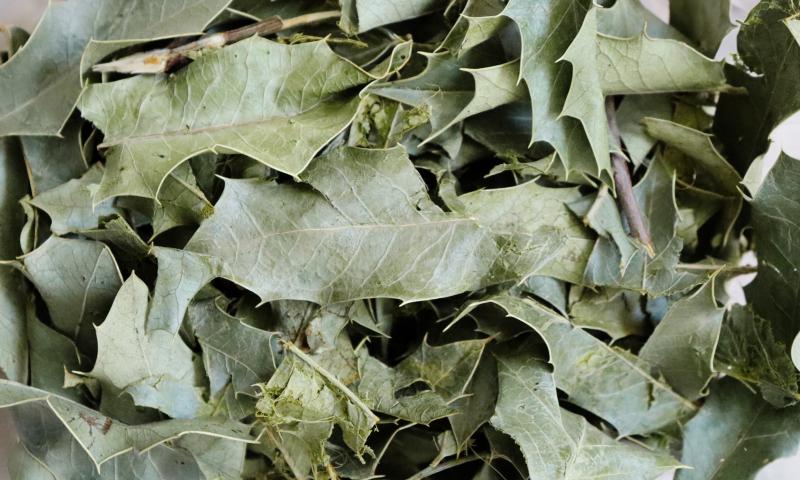 />
/>
Botanical Characteristics:
Espinheira Santa, scientifically known as Maytenus Ilicifolia, is a plant indigenous to South America, particularly in the rainforests of Brazil, Argentina, and Paraguay. It is a medium-sized shrub or small tree that can reach heights of up to 5 meters. Its leaves are elliptical or lance-shaped, characterized by their serrated edges that resemble the shape of holly, which is perhaps why its name translates to "Holy Thorn" in Portuguese. The plant produces small, inconspicuous flowers that later develop into red berries.
Chemical Composition:
Espinheira Santa is renowned for its complex composition of chemicals that are believed to confer various health benefits. Some of the primary compounds include:
Tannins: They are polyphenolic compounds that have a strong astringent taste.
Flavonoids: These are powerful antioxidants that play a role in cellular function and metabolism.
Triterpenes and Steroids: They are complex compounds that are essential for various biological activities in plants.
Catechins: These are a type of flavonoid known for their antioxidant capabilities.
Historical Facts:
The indigenous tribes of South America have revered Espinheira Santa for centuries. They used it for a myriad of purposes, and its reputation as a potent medicinal herb spread throughout the continent. Spanish and Portuguese explorers took notice of its benefits and played a pivotal role in introducing it to Europe.
In Brazilian folklore, it was said to be a divine plant gifted from the heavens to aid in human ailments. Its esteemed position in traditional medicine led to various scientific studies in the 20th century, cementing its place in modern herbal practices.
Taste:
The taste of Espinheira Santa is quite distinct. It possesses a mildly bitter flavor with astringent undertones, thanks to its high tannin content. Some people describe it as having a similar taste to green tea but with an added earthy note. Often, its leaves are brewed as a tea, which has a pleasant, woody aroma.
General Health Benefits:
While steering clear of any specific illness or disease claims, Espinheira Santa has a myriad of general health benefits:
Digestive Support: Many individuals consume Espinheira Santa tea to support a healthy digestive system. Its astringent properties can provide a soothing effect.
Antioxidant Properties: With its rich flavonoid content, Espinheira Santa acts as a potent antioxidant, helping combat free radicals in the body.
Skin Health: The compounds present in the plant might help maintain skin health when applied topically, though further studies are required.
Mood and Stress: Traditional uses also hint at its potential role in supporting mood and combating the effects of stress, though exact mechanisms are not fully understood.
Indications for Use:
Espinheira Santa is commonly consumed as a tea, with the dried leaves steeped in hot water. It can also be found in supplemental form, such as capsules or tinctures. However, like with any herb or supplement, it's crucial to consult with a healthcare professional before incorporating Espinheira Santa into your routine. Pregnant or nursing women, or individuals with pre-existing health conditions, should be particularly cautious.
In conclusion, Espinheira Santa is a testament to the rich tapestry of traditional medicines that have stood the test of time. Its storied history, unique flavor profile, and potential health benefits make it a plant of intrigue and reverence. As research advances, we can hope to gain even deeper insights into the myriad ways this "Holy Thorn" can benefit humanity.
